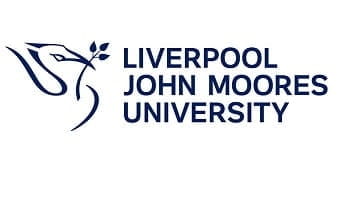Course modules
Discover the building blocks of your programme
Further guidance on modules
Modules are designated core or optional in accordance with professional body requirements, as applicable, and LJMU’s Academic Framework Regulations. Whilst you are required to study core modules, optional modules provide you with an element of choice. Their availability may vary and will be subject to meeting minimum student numbers.
Where changes to modules are necessary these will be communicated as appropriate.
Core modules
Advanced Research Methods for Social Science
30 credits
30 credits
Conceptualising Crime, Criminal Justice and Social Policy
30 credits
30 credits
Critical Criminology and the State: Historical and Contemporary Perspectives
30 credits
30 credits
Dissertation
60 credits
60 credits
Globalisation and Comparative Social Policy: Crime, Harm and (in)justice
30 credits
30 credits
Career paths
Further your career prospects
LJMU has an excellent employability record with 96% (HESA 2018) of our postgraduates in work or further study six months after graduation. Our applied learning techniques and strong industry connections ensure our students are fully prepared for the workplace on graduation and understand how to apply their knowledge in a real world context.
Fees and funding
Entry requirements
You will need:
Qualification requirements
Alternative qualifications considered
A good first degree at second class. A professional qualification recognised as equivalent to a degree; An award which the University has agreed to accept as equivalent to a degree; Non-standard entry: For applicants not in possession of a good honours degree at second class, the programme leader will take into account relevant professional background (e.g. criminal justice/social policy practitioner etc.) and the volume of professional experience. Any participant who does not have a first degree must satisfy the programme team of their ability to study at Master's level through presentation of a strong portfolio of skills to demonstrate appropriate knowledge and expertise gained from within their work place. For these applicants, individual assessments of their suitability will be conducted by the programme leader and team. RP(E)L and International Students The programme welcomes students with both prior certificated learning and or application for experiential learning credits. Prior learning will be mapped against the programme and/or module outcomes on a case by case basis in line with University policy around RP(E)L. English proficiency requirements: An IELTS English qualification score of a least 6.0 (with a minimum of 5.5 in each element) or equivalent English language qualification. Similarly, the minimum English proficiency requirements for the various countries Unicaf recruits from have been approved by LJMU and will be followed. LJMU Admissions have approved the Unicaf English Placement Test (EPT) where English proficiency cannot be proven otherwise.
How to apply
Securing your place at LJMU
Your university life
From accommodation and academic support to clubs and societies. Find out what LJMU has to offer.
Talk to our students
Connect with a current LJMU student for advice and guidance on university life, courses and more.
See what our students are saying
At LJMU we want you to know you’re making the right choice by studying with us. You can see what our students are saying about their experience with us through their reviews on the following websites:
Related Links
News and views
Browse through the latest news and stories from the university










The University reserves the right to withdraw or make alterations to a course and facilities if necessary; this may be because such changes are deemed to be beneficial to students, are minor in nature and unlikely to impact negatively upon students or become necessary due to circumstances beyond the control of the University. Where this does happen, the University operates a policy of consultation, advice and support to all enrolled students affected by the proposed change to their course or module.









